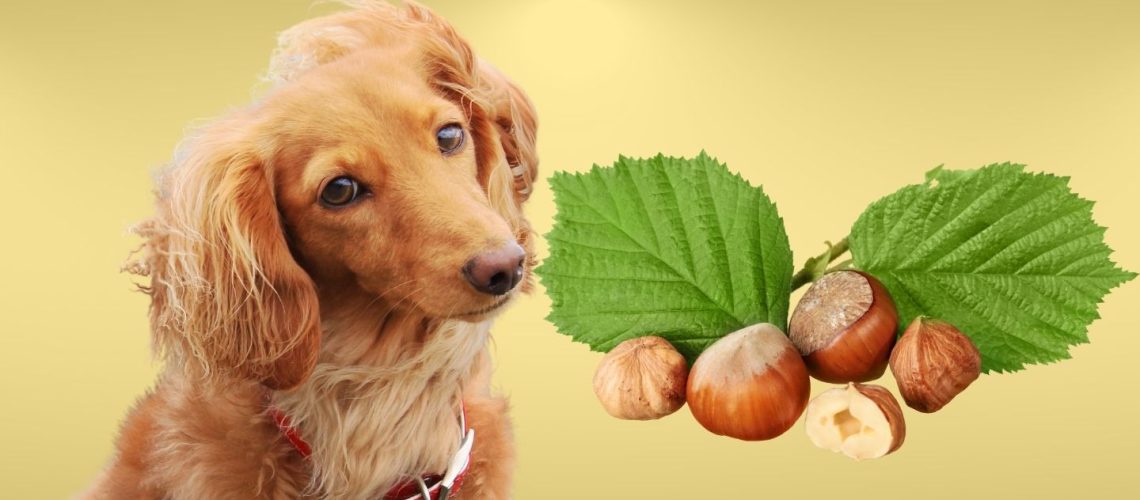Yes, dogs can safely eat hazelnuts in moderation. However, it is important to keep in mind that hazelnuts are high in fat and can cause gastrointestinal distress if consumed in large quantities. This article will discuss the nutritional value of hazelnuts, their potential health benefits and risks, and tips for safely feeding hazelnuts to dogs.
Nutritional Value of Hazelnuts for Dogs
Energy and Macronutrients
Hazelnuts are a good source of energy, protein, healthy fats, and various vitamins and minerals. They also contain antioxidants, which can help support a dog's immune system. However, like any nut, hazelnuts are high in fat and should be given in moderation to prevent weight gain and gastrointestinal issues.
Vitamins and Minerals
Hazelnuts contain various essential vitamins and minerals, such as vitamin E, thiamine, magnesium, and manganese, which can contribute to a dog's overall health and wellbeing.
Antioxidants
Hazelnuts are rich in antioxidants, which can help protect your dog's cells from damage caused by free radicals, thus supporting their immune system.
Potential Health Benefits of Hazelnuts for Dogs
Healthy Coat and Skin
The protein and healthy fats in hazelnuts can help support a healthy coat and skin for your dog, giving them a shiny and smooth appearance.
Immune System Support
The antioxidants in hazelnuts can help support a dog's immune system, which could aid in their ability to fight off illnesses and infections.
Cognitive Function
Although not conclusive, some studies suggest that the nutrients found in hazelnuts may have a positive impact on cognitive function in animals, including dogs.
Potential Risks of Feeding Hazelnuts to Dogs
Gastrointestinal Distress
The high-fat content in hazelnuts can cause gastrointestinal distress if consumed in large quantities. Symptoms of gastrointestinal distress in dogs include vomiting, diarrhea, and abdominal pain.
Choking Hazard
Hazelnuts can be a choking hazard for dogs, so it is important to supervise your dog while they are eating them.
Toxic Ingredients and Contaminants
Some hazelnuts contain salts, which can be toxic for dogs. Additionally, hazelnuts may sometimes contain fungus or other contaminants, so it's crucial to look carefully before offering hazelnuts to your dog.
Tips for Feeding Hazelnuts to Dogs
Moderation is Key
If you want to give your dog hazelnuts, it is important to do so in moderation. A good rule of thumb is to limit hazelnut treats to 10% of your dog's daily caloric intake.
Choose the Right Hazelnuts
It is essential to select plain, unsalted hazelnuts and avoid any hazelnuts that have been coated in chocolate or other harmful substances.
Supervision and Safety
Finally, be sure to supervise your dog while they are eating hazelnuts to prevent choking.
Alternatives to Hazelnuts for Dogs
Other Nuts and Seeds
Other dog-safe nuts and seeds, such as almonds and pumpkin seeds, can also provide your dog with beneficial nutrients.
Dog-Safe Fruits and Vegetables
Fruits like apples or carrots are great alternatives to nuts, as they also contain essential nutrients and can provide a healthy snack for your dog.
Conclusion
In conclusion, hazelnuts can be fed to your dogs as a treat in moderation. Offer clean, unsalted, plain, and additive-free hazelnuts to your dogs. Observe your dog after feeding, and if you notice any abnormalities, contact your veterinarian. Always consult your veterinarian if you have any concerns or questions about your dog's diet and health.











